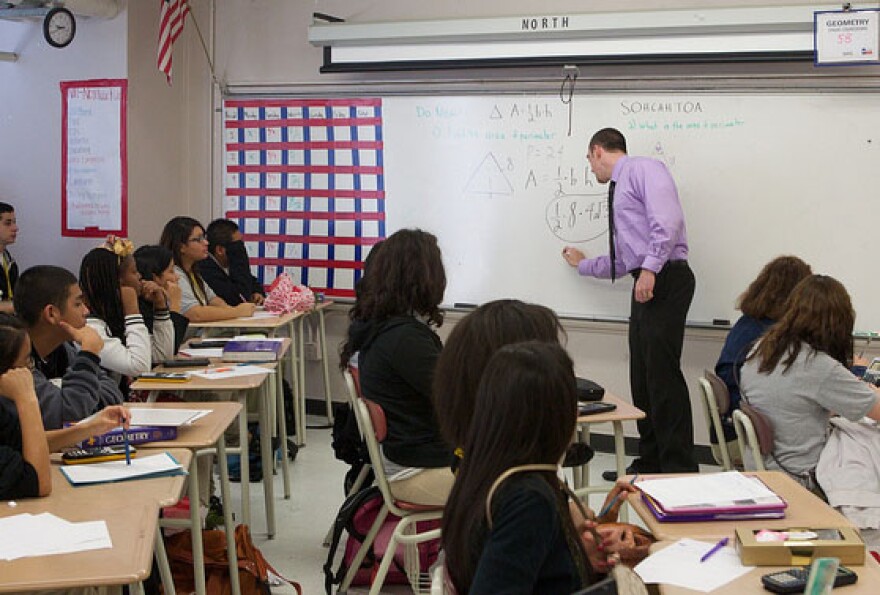Both of Missouri’s U.S. senators like the idea of shifting more control over elementary and secondary education back to the states and away from the federal government. A Senate education bill being debated this week does just that, but the degree to which state and local officials may reclaim control over their schools will depend on a wide-range of amendments being offered and whether Republicans and Democrats are able to compromise on some divisive issues.
U.S. Sen. Roy Blunt, R-Mo., said that while the bill “moves in the direction of more state and local control. I don’t know that it moves far enough in that direction and I’m going to be looking very closely at that.”
U.S. Sen. Claire McCaskill, D-Mo., said the bill corrects problems with President George W. Bush’s signature No Child Left Behind Act, which she said did not work as intended. “It has instilled a teach-to-the-test mentality in too many schools where creativity and encouraging teachers to use their own creativity to teach has really been put on a side burner.”
Both senators spoke with Missouri reporters in separate conference calls Wednesday morning.
Blunt said he is working on an amendment to allow states to “opt out of federal control areas and still qualify for some of the federal assistance that’s available to states.”
McCaskill said that while the Senate bill shifts greater responsibility for determining the consequences of poorly performing schools back to state officials, it does contain provisions ensuring “accountability for the progress a student is making.”
Key provisions of the Senate bill:
- Strengthens state and local control of education
- Ends the mandate of Common Core national standards
- Ends federal involvement the consequences of poor test results as they pertain to teacher evaluations
- Strengthens charter schools
- Helps states streamline access to early childhood education funding programs
The House has passed its own education billwith support almost exclusively from Republicans. The White House has already threatened to veto that bill, claiming that it does not have sufficient accountability provisions.
One issue that could quickly divide Republicans and Democrats in both chambers is the use of vouchers. Democrats say vouchers allow parents to take needed federal dollars away from disadvantaged schools.


